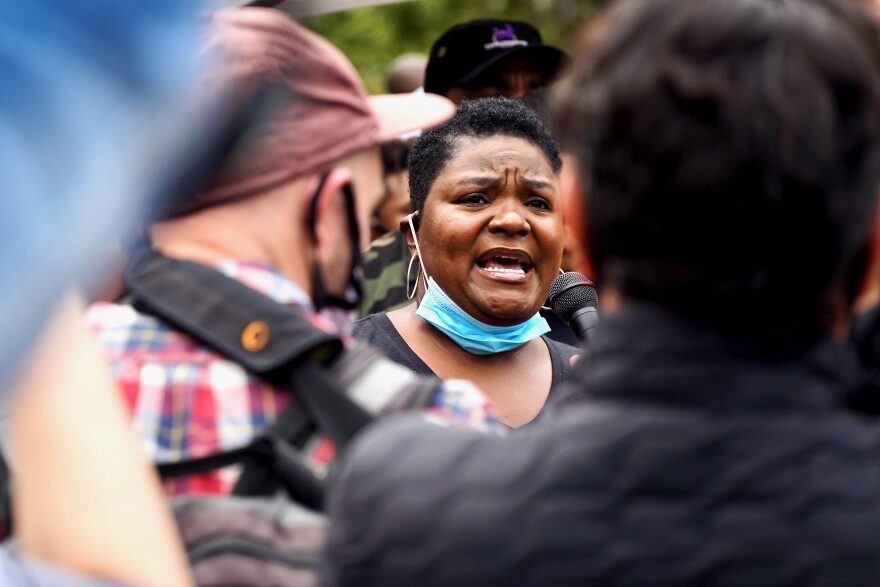During the Louisville Urban League’s annual IMPACT Report Luncheon Friday afternoon, president and CEO Sadiqa Reynolds called on Louisvillians to “not waste this crisis.”
“We must win the war against racism. Win the war against disenfranchisement. Win the war against political complacency and corporate neglect,” she said. “We must be willing to fight and win the war for humanity and dignity for all people. That will require us to be unwavering in our commitment to hold a line.”
It’s time for people who have “power and privilege to develop some backbone,” she said.
“You have to be prepared to sit with your discomfort, to admit the wrongs of city leaders, some of your corporations. You have to be willing to help us move forward.”
In her speech, Reynolds reflected on the past summer and spring in Louisville. She spoke about Breonna Taylor, the 26-year-old Black woman shot and killed by Louisville Metro Police in her apartment in the early hours of March 13. She talked about the piling on of trauma and grief as the community waited for more details about what happened that night in Taylor’s home, coupled with the release of videos of the shooting death of Ahmaud Arbery in Georgia and George Floyd, killed by a former white Minneapolis police officer who knelt on Floyd’s neck.
And all of this happened against the backdrop of a global pandemic that’s disproportionately affecting Black people and people of color.
But what “broke the damn” in Louisville on May 28, the first night of anti-racism and police brutality protests in the city, was the Courier Journal publishing a story and releasing audio from a 911 call made by Taylor’s boyfriend, Kenneth Walker, according to Reynolds.
“The audio confirmed what we suspected, that the case against Kenny wasn't strong. After all, what Black man is released on home incarceration after shooting a white police officer?” she said. “We knew there was more to that story.”
That drove Louisvillians out into the streets of downtown that night, she said, “devastated… and traumatized by George Floyd's murder, but it was Breonna Taylor's life and death that ravaged any semblance of trust we had in our city leaders.”
The community is still waiting for justice, Reynolds said, and not just for Taylor, but for David McAtee, killed by National Guard officers on June 1 during a curfew enforcement..
Less than an hour before the luncheon began, the Kentucky Prosecutors Advisory Council voted down a request from Taylor’s mother, Tamika Palmer, to appoint a special prosecutor to investigate her daughter’s death.
“This city, in its apathy toward our humanity, has woken a new wave of freedom fighters and reinvigorated some old ones,” she said. "And we will never again have peace without justice. We will not settle, and we will not stop until the fight is finished.”
Reynolds said it’s not enough to invite Black people to the table. She asked those in power to “listen to us,” to examine policies and systems that continue to shut people out and to make substantive change.





